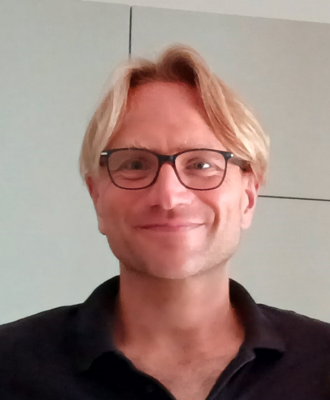Maitre de Conférences (assistant professor) at l’Université de Lorraine.
Laboratoire de cristallographie, résonance magnétique et modélisations (CRM2, UMR 7036)
Faculté des Sciences et Technologies, Boulevard des aiguillettes, BP 70239
54506 Vandoeuvre les Nancy
Email : Nicolas.Claiser@univ-lorraine.fr Website : crm2.univ-lorraine.fr
PROFESSIONAL EXPERIENCE
|
Since September 2005 |
Maitre de Conférences, Université de Lorraine (CRM2, UMR 7036). |
|
Jan. 2005 – Aug. 2005 |
Attaché Temporaire d’Enseignement et de Recherche (ATER), LCM3B, Faculté des Sciences, Nancy Université |
EXPERTISE
Crystallography, Charge density, Joint refinement, Molecular magnetism
RECENT PUBLICATIONS (H Factor = 13)
“Spin-resolved charge density and wavefunction refinements using MOLLYNX: a review”
M Souhassou, I Kiblin, M Deutsch, AB Voufack, C Lecomte, N Claiser
Acta Crystallographica Section B77 (2021), Pages 706-714
“Determining local magnetic susceptibility tensors in paramagnetic lanthanide crystalline powders from solid-state NMR chemical shift anisotropies”
R Ince, A Doudouh, N Claiser, É Furet, T Guizouarn, L Le Pollès, G Kervern
The Journal of Physical Chemistry A 127 (2023), Pages 1547-1554
“Spin-resolved atomic orbital model refinement for combined charge and spin density analysis: application to the YTiO3 perovskite”
I Kibalin, AB Voufack, M Souhassou, B Gillon, JM Gillet, N Claiser, A Gukasov, F Porcher, C Lecomte
Acta Crystallographica Section A: Foundations and Advances 77 (2021), Pages 96-104
“Synthesis, crystal structure and phase transitions of novel hybrid perovskite: bis (1, 2-diaminopropane) di-μ-chloro-bis [diaquadichloromanganate (II)] dichloride”
SK Abdel-Aal, M Souhassou, P Durand, C Lecomte, AS Abdel-Rahman and N Claiser
Acta Crystallographica Section B79 (2023), Pages 314-319
INVITATIONS
Co-Chair of the microsymposia 83 “Quantum Crystallography Challenges and Opportunities for Magnetic Materials” microsymposia at the IUCr 2023 congress (Melbourne, Australia)
Recent lectures at scientific conferences:
- microsymposia 21: “Electron diffraction joining forces with quantum crystallography towards materials science applications” at the ECM 34 congress (2024, Padova, Italia)
- microsymposia 20: “Electric, opto‐electronic and magnetic properties from elastic and inelastic scattering plus properties of materials from quantum crystallography” at the ECM 33 congress (2022, Versailles, France)
Lecture 40: Nicola Claiser
Joint refinement of diffraction data (but not only):
a short story
Nicolas CLAISER
Université de Lorraine, Laboratoire de Cristallographie, Résonance Magnétique et Modélisations (CRM2, UMR CNRS 7036), France
Web : http://crm2.univ-lorraine.fr/lab/fr
nicolas.claiser@univ-lorraine.fr
Our laboratory has a long tradition of crystallographic software development. Our interest, for the past 15 years, lays on developing new refinement methods that allow to combine X-ray and neutron diffraction experiments to build a more precise experimental model of the crystal under study. The studied materials are magnetic and we are interested in describing, as precisely as possible, the atomics interactions in the solid phase that are controlling the magnetic properties.
This conference will detail the process of developing our model up to the provision of the MOLLYNX program [1] to the community, included in the MOPRO software suite [2]. Thus, it is now possible to combine high resolution X ray diffraction data, X ray magnetic diffraction data, neutron diffraction data and polarized neutron diffraction data.
The studied crystals are mainly metal-organic complexes since this type of material is very innovative in terms of magnetism, but it can also be applied to inorganic materials, minerals as well as pure organic radicals. We will show how the obtained “joint model” helps to go deeper in the physical description of crystals.
Finally, in a last part we will propose some new development in direction of the integration in our model of the site susceptibility tensors. If well-established methods that have proven their robustness are the natural way to reach this aim [3], we are looking in parallel for experimental alternatives to these sometimes complicated measurements [4].
References
[1] M. Souhassou, I. Kiblin, M. Deutsch, A. B. Voufack, C. Lecomte and N. Claiser, Acta Cryst. (2021). B77, 706-714, https://doi.org/10.1107/S2052520621008222
[2] Jelsch, C.; Guillot, B.; Lagoutte, A.; Lecomte, C., J. Appl. Crystallogr. 2005, 38, 38−54.
Guillot, E.; Espinosa, E.; Huder, L.; Jelsch. C., Acta Crystallogr. 2014, 70, C279.
[3] Gukasov A and Brown P J, 2002, J. Phys.: Condens. Matter, 14, 8831
[4] Ince R., Doudouh A., Claiser N., Furet É., Guizouarn T., Le Pollès L., Kervern G.. J. Phys. Chem. A. 2023;127:1547–1554. doi: 10.1021/acs.jpca.2c06955.


